Meyer family fonds
Paul Meyer (b. October 9, 1916, d. September 14, 2003) and Max Meyer (b. February 22, 1939, d. April 1, 2004) were born in Cologne, Germany to parents Eugen Meyer (b. August 8, 1880 Cologne, d. October 10, 1964 Vancouver) and Alice née Jonas (b. circa 1890). Eugen Meyer ran a lace and tulle fashion business, M. Meyer & Co., founded by his father, Max Meyer (b. 1848 Bubenheim, Germany, d. 1896 Calais, France) in Cologne, around 1870. Eugen took the business over in the late 1890s, after the death of his father, and ran it with his uncle, Ernest, an accountant. At its height the business employed 300 workers.Eugen Meyer served as a soldier in the German army in the First World War and wrote a diary of his and his unit’s experiences. Eugen’s brother, Alfred Meyer (b. 1882), also a soldier in the German army, was killed in France in 1918.Ernst Jonas, father of Alice, died on March 17, 1919 while a prisoner of war. Alice’s sister, Lucie Jonas, was married to Heinrich Frank; both were killed in Sobibor in 1943.After the Nazis came to power in Germany, the Meyer siblings and other Jewish children were forbidden to attend school. Paul was arrested during Kristallnacht and sent to Dachau. Max, a salesman, was in Hanover on business and was not arrested on that night; he was able to buy a visa on the black market to help Paul get out of Dachau. The brothers were told they had to leave Germany or be interned. They obtained passports and a transit visa with help from an uncle, and then arranged passports for their parents. The Meyers paid significant fines upon leaving Germany.The Meyers applied to emigrate to Canada and received special permission from the Commissioner of Immigration early in 1939, but their plans were cancelled at the outbreak of the Second World War. The family was able to leave Antwerp for New York in October, 1939, and then travelled by train to a camp outside of Montreal. They settled in Vancouver, BC, where Paul and Max started a pottery business and their mother, Alice, worked for the Red Cross.In 1954, Paul returned to Cologne and visited the former location of his family’s lace business, on Apostelnstrasse II. The original building was damaged but the basement remained intact. Paul retrieved samples and other materials produced by M. Meyer & Co. in the basement and brought these materials back to Vancouver. Fonds consists of records pertaining to the life, military service and work of members of the Meyer family in Germany before 1939, records related to their attempts to leave Germany and personal objects owned by Paul Meyer in Vancouver. Records include identity and transit documents, records related to taxes and fines, diaries, photographs, publications and correspondence. The fonds has been arranged by the archivist into the following five series:Family records series (1875–1939), Correspondence series (1938–1939), Writings, publications and ephemera series (1915–1976), Photographs series ([1900-1901?]–[after 1980s?]) and Artefacts series ([19--]). Item list is available.
- EHRI
- Archief
- ca-005461-ra038
- Object
Bij bronnen vindt u soms teksten met termen die we tegenwoordig niet meer zouden gebruiken, omdat ze als kwetsend of uitsluitend worden ervaren.Lees meer




